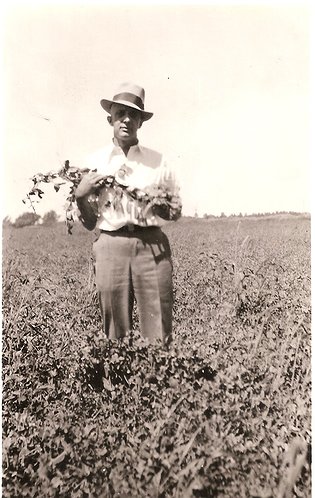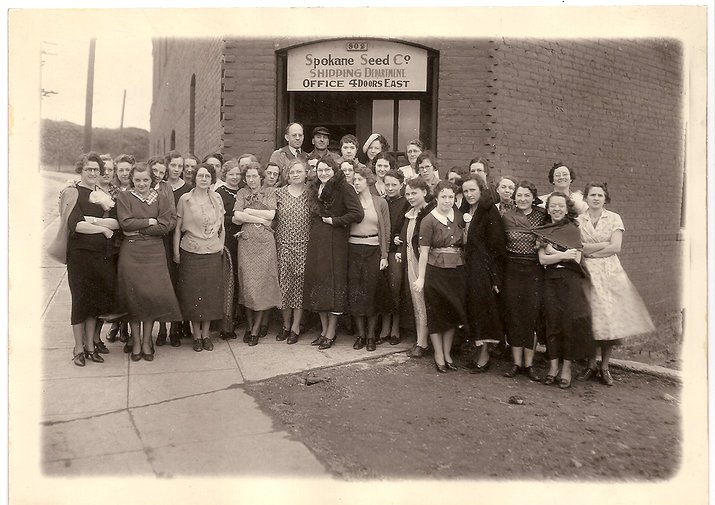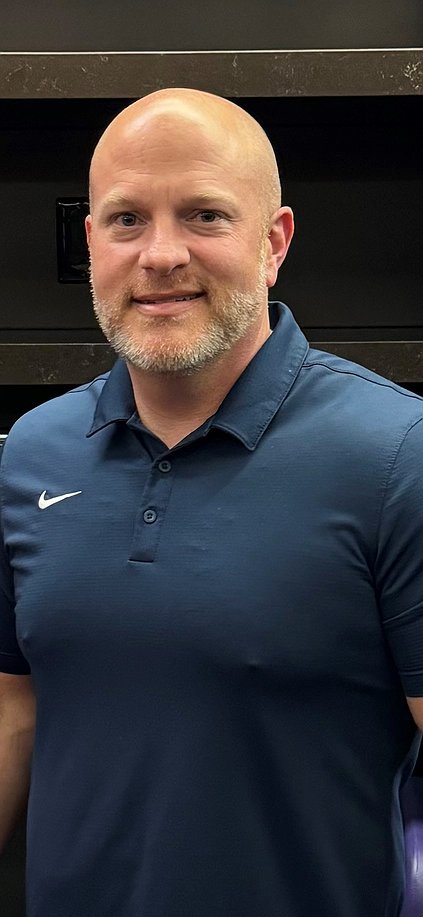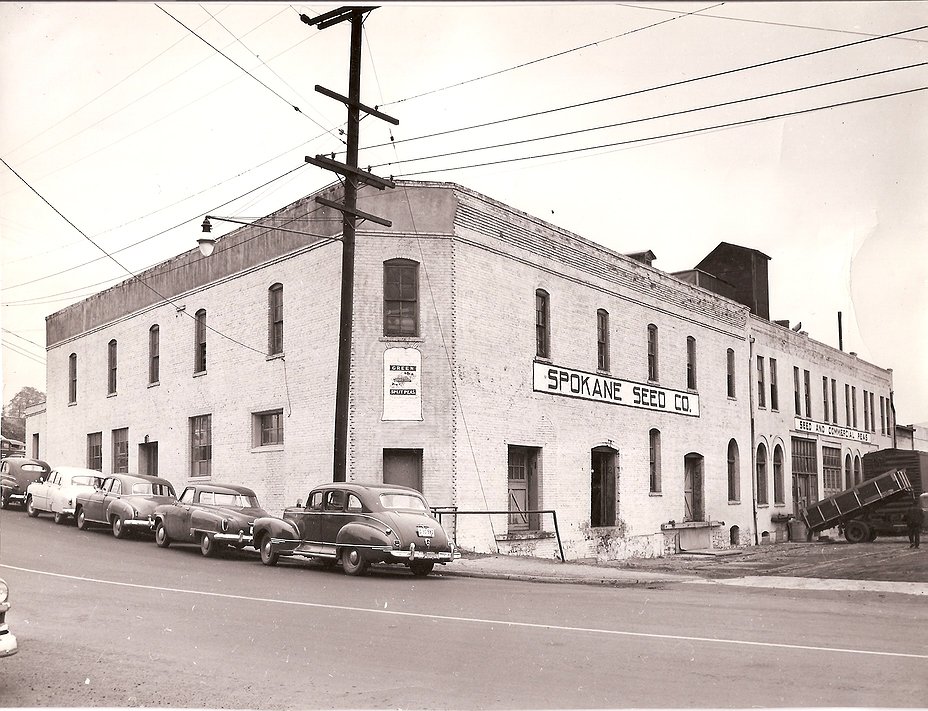Spokane Seed provides product, knowledge backed by a century
Evolution is a thing in business as well as biology. Spokane Seed has been around for more than a century, and it has evolved as the farms around the Palouse have evolved.
“We’re a distributor, a wholesaler,” said Spokane Seed president Andrew Fontaine, the fourth generation of his family to run the business.
Their customers, he said, are looking for a very specific kind of product; for dried peas, lentils and garbanzo beans, he said. Their customers come from throughout the world.
Spokane Seed has the kind of reputation that has customers seeking them out, he said; that’s partly due to the company’s century-plus in business. Staying in demand requires more than a long history, however.
“We are focused on top-tier quality,” Fontaine said. “We have all the modern equipment – electric eye color sorting, magnets, metal detection, infrared sorters, which isn’t standard.”
Many of their customers want that attention to detail, he said.
Tony Snider, vice-president of the N.K. Hurst Company, said attention to detail is one of the things that go into making a good supplier but not the only thing. Spokane Seed has supplied peas and beans to N. K. Hurst, Indianapolis, Indiana, for nearly 70 years.
“What makes a good supplier is the willingness to work with us, with our purchasing, with our buyers and be able to communicate,” Snider said.
If N.K. Hurst places an order with Spokane Seed, they have confidence the order will be delivered on time, or Spokane Seed owners will tell them about any delay. Another attribute of a good supplier is making sure the product arrives in good condition, he said.
“We’re using trucks. We’ve got a product that has to be packed in that trailer so that it doesn’t move around and get damaged. They’ve always paid close attention, because of how far they’re shipping, to make sure that they pack it so that when we receive it it’s in the best condition,” Snider said.
“And obviously price,” he said. “I’ve been working with Andrew for about 15 years, and we have this back-and-forth relationship, and the transparency’s there in that relationship.”
But Spokane Seed didn’t start as an international supplier of pulse crops, back in 1908 when Curt Whaley sensed opportunity in the wheat country.
Whaley was from Montana, came to Spokane looking for his fortune and found it in a business that supplied farms in the wheat country around Spokane. Farmers needed a wide variety of things from the shop in the early 1900s.
“Back then we were a hardware store, a seed and implement store. So, we sold seeds for all types of produce. But we also sold (farm implements) like ladders and bee sprayers and gloves,” Fontaine said. “We would issue catalogs pretty much local to the Palouse area, which we would call the area south of Spokane, all the way to Lewiston, Idaho.”
The company did a brisk trade for a couple of decades, but Whaley sensed another opportunity. It came with the arrival of wheat farmers who rotated crops, planting peas and lentils in off-years.
“They are a unique crop that (transfers) nitrogen out of oxygen into the soil. These plants – they’re called pulses – they convert oxygen into nitrogen and create nodules in the soil, which is natural fertilizer,” Fontaine said.
Yield increased, and farmers saw that; so did Curt Whaley.
“At that point my great-grandfather took notice of that and slowly converted the company from the hardware store into strictly a pea and lentil seed company,” he said. “Then with the expansion of that we eventually came into cleaning those products for food grade with the excess production that we were receiving. We then started (supplying) food companies on the West Coast that were using peas for canning and lentils for packaging.”
But staying afloat in the tough markets of the 1930s meant continued evolution. In the late 1930s, the company updated their pea-splitting process, which caught the attention of the owners of the Campbell Soup company. They signed up with Spokane Seed.
“We just kind of fell into that relationship and we still, to this day, are the exclusive supplier for peas and lentils for Campbell Soup,” Fontaine said.
The company later added garbanzo beans to its inventory, and Fontaine said Spokane Seed focuses on those three crops. Being a wholesaler, the minimum order is 40,000 pounds, he said.
The domestic market makes up about half the company’s business.
“The other half of our business, we do direct export all over the world. Out main markets are Spain, Italy; we do a lot of business into Peru, Korea, we have some Japanese business. We do a huge business in the Philippines. Those are whole green peas for making Wasabi peas,” he said. “We have smaller markets in the Middle East, and we have a customer in Iceland that does canning. We (supply) Campbell’s Soup Australia. We ship to every continent except Antarctica.”
Technology and consumer preferences affect the market, and constant evolution opens up new markets, Fontaine said.
“That includes more modern products, like hummus and falafel and gluten-free pastas – and even protein extraction for energy drinks and protein drinks. They extract the vegetable proteins. We don’t extract the proteins, but we sell to people who do,” he said.
Quality service for the end customer is crucial – and so is providing service to the farmers that supply the crop.
“We work with over 350 farmers locally, and we have to be very in touch with them. I have six field representatives (whose) sole job is to be in pickups and driving from farm to farm to farm, coaching farmers. ‘Hey, this crop looks really good, I think you’re going to harvest it in 10 days.’ Or, ‘This crop has some weed pressure over here, you probably need to address that.’ And making sure farmers have timely information,” he said.
Like all sectors of the agriculture business, certain crucial factors that affect production are out of the company’s control.
“Weather is a huge deal. It really dictates your success,” Fontaine said.
Hot summer weather at crucial times has sped up the harvest, resulting in smaller yields, he said. That’s been a challenge the last few years.
The second factor, he said, is the impact of government action on the market. This year, that’s been a source of worry due to possible tariffs. Agriculture products are not a direct target of tariffs, but countries will impose them in retaliation for tariffs on other products.
Fontaine said he was recruited into the family business 23 years ago, when his parents and uncles were thinking about the succession.
“The upper level of the company at the time said to my uncle, ‘What’s your plan, what are we going to do with the company?’ And they kind of looked around and said, ‘Well, Andrew’s the only option.’ So, they asked me if I would come work for a couple years,” he said.
Fontaine was working in a different industry, living in his hometown of Seattle, newly married, and he was skeptical, he said.
“I gave it a try, and that was 23 years ago,” he said. “I enjoy it. I’ve traveled all over the world, and it’s a unique opportunity. I’ve told my kids, ‘If you do want to work here, it’s not usual that your family has a fifth-generation family business.’”
One of his sons is the first of the fifth generation, starting in the business in early July, he said.










